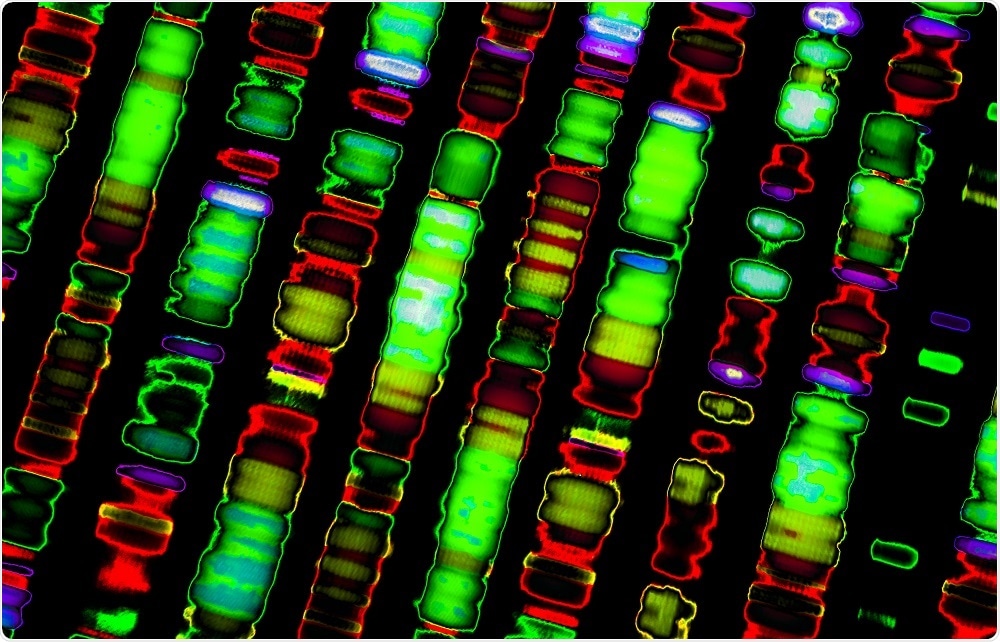Scientists have assembled the most complete human genome to date using a pocket-sized, portable DNA sequencer, providing a much simpler way of piecing together the genome than previous methods.

Credit: Gio.tto/Shutterstock.com
The achievement is the result of an international collaboration by researchers from the University of Nottingham, the University of Birmingham and University of East Anglia, as well as teams in the US and Canada.
As reported in Nature Biotechnology, the researchers used the Oxford Nanopore Technologies MinION sequencer. The device is the same as size as a mobile phone and sequences DNA based on the change in current flow as single DNA molecules pass through a nanopore (miniature hole) in a membrane.
Using the technology, the researchers could sequence an entire human genome using fragments hundreds of times larger than conventional DNA sequencing methods will allow.
As well as enabling sequencing of previously uncharacterised regions of the genome, the study provided greater insights into regions that regulate functions such as immunity and tumor growth.
This could have important implications for clinical practice, with it becoming possible to detect large genome rearrangements that contribute to cancer, for example.
The researchers believe these sequences and longer ones could be routinely generated in the future to provide human genomes that are as complete as the human genome reference, a product of more than 20 years of work and more than $2bn of investment.
The possibility of being able to use a $1,000 device to perform genome sequencing could also lead to mainstream use of the technology.
This important study demonstrates that we are getting ever closer to widely accessible human genome sequencing. In the future, this technology could potentially be used for the rapid, near-patient diagnosis of diseases such as cancer.”
Dr Justin O’Grady, Associate Professor in Medical Microbiology at Norwich Medical School, University of East Anglia
Dr Matt Loose from the University of Nottingham’s School of Life Sciences referred to the study as a landmark for genomics, with the long reads nanopore sequencing enables providing a much clearer picture of the overall structure and organisation of the genome than ever before.